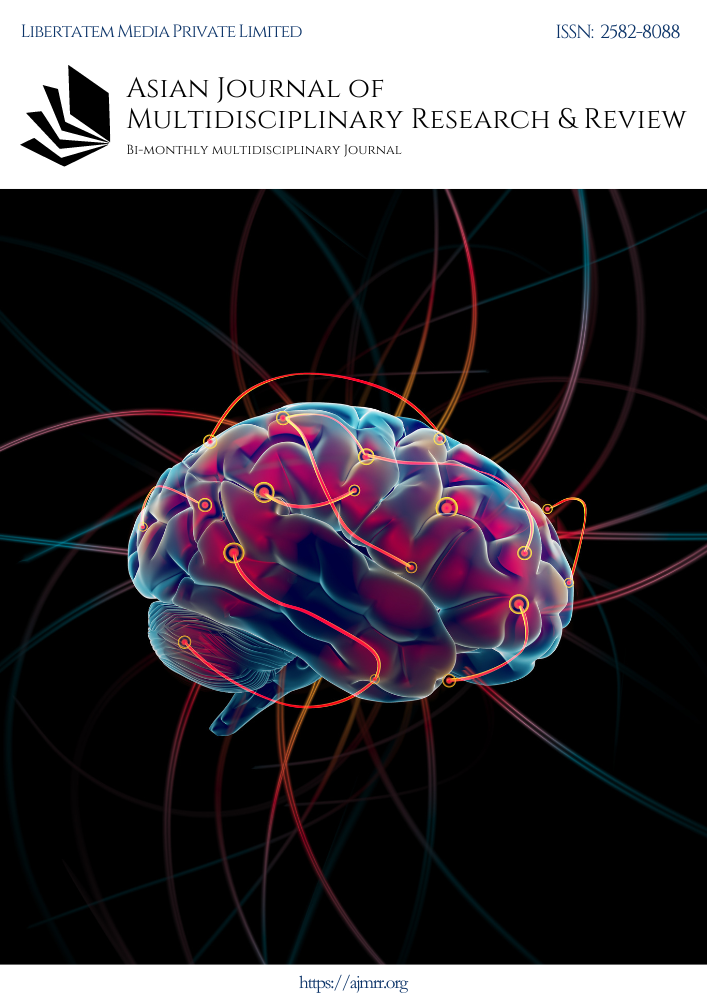MONEY LAUNDERING – THE IMPACT IN THE INDIAN ECONOMY
Keywords:
Dirty Money, Round-trippingAbstract
Money laundering is the illegal process of making large amounts of money generated by a criminal activity, may it be a terrorist funding or drug trafficking, making it appear to have sprang from a legitimate source. It is considered as a dirty money and the launders by all their efforts would project such transactions to be genuine and clear. This is predominantly committed uniformly by both the while collar and other miscreants. Online platforms and other crypto currencies are being used as the mode for movement of the funds by the criminals in a way by which it never gets detected. In India, emergence of the Hawala transactions which are treated as the core part of laundering, has been witnessed to be capturing its momentum in the last thirty years time. Top business officials, politicians and other bureaucrats, in combination or individually are found to be very active in carrying out the hawala deals and contributing highly towards creating a parallel economy. Over and above the mentioned teams, the agents of these transactions a taking a crucial role in ensuring that such transactions never misses the track. Hence, in many ways the money laundering activities are aiming towards generating the black and illegal money abnormally. Many business segments got affected adversely due to such dirty transactions and are invariably creating a threat to the sustainability of a descent economy. Many scams and cases booked in India in the past substantiates the depth of the penetration of laundering in the economy. Though there are so many regulations enacted in the country to counter such criminal efforts, the results of such laws in the system need a closer look.
Downloads
Downloads
Published
Issue
Section
License

This work is licensed under a Creative Commons Attribution-NonCommercial-ShareAlike 4.0 International License.
License Terms
Ownership and Licensing:
Authors of research papers submitted to the Asian Journal of Multidisciplinary Research & Review (AJMRR) retain the copyright of their work while granting the journal certain rights. Authors maintain ownership of the copyright and grant the journal a right of first publication. Simultaneously, authors agree to license their research papers under the Creative Commons Attribution-ShareAlike 4.0 International (CC BY-SA 4.0) License.
License Permissions:
Under the CC BY-SA 4.0 License, others are permitted to share and adapt the work, even for commercial purposes, as long as proper attribution is given to the authors and acknowledgment is made of the initial publication in the Asian Journal of Multidisciplinary Research & Review. This license allows for the broad dissemination and utilization of research papers.
Additional Distribution Arrangements:
Authors are free to enter into separate contractual arrangements for the non-exclusive distribution of the journal's published version of the work (e.g., posting it to institutional repositories or publishing it in books), provided they acknowledge the initial publication of the work in the Asian Journal of Multidisciplinary Research & Review.
Online Posting:
Authors are encouraged to share their work online (e.g., in institutional repositories or on personal websites) both prior to and during the submission process to the journal. This practice can lead to productive exchanges and greater citation of published work.
Responsibility and Liability:
Authors are responsible for ensuring that their research papers do not infringe upon the copyright, privacy, or other rights of any third party. The Asian Journal of Multidisciplinary Research & Review disclaims any liability or responsibility for any copyright infringement or violation of third-party rights in the research papers.



